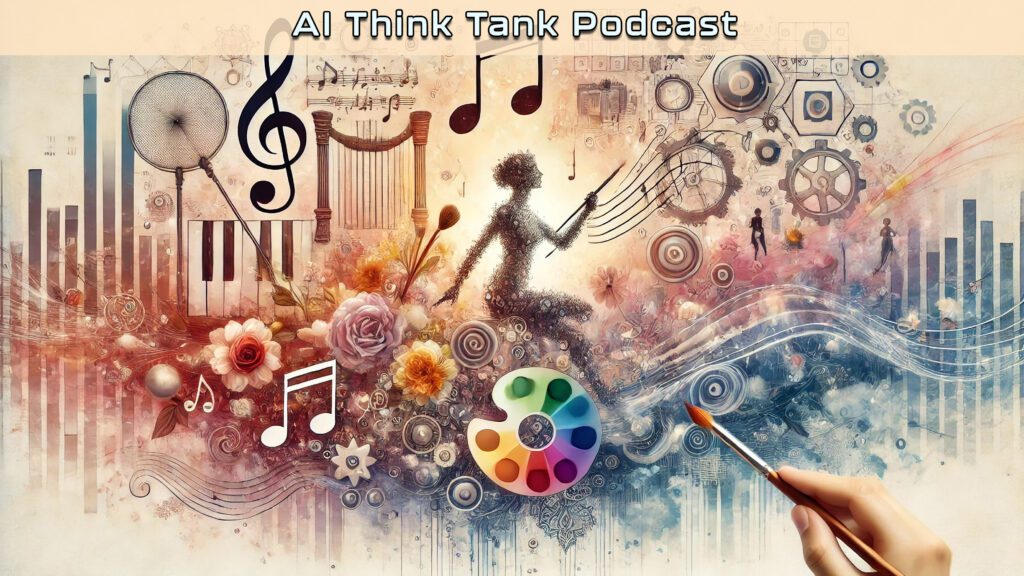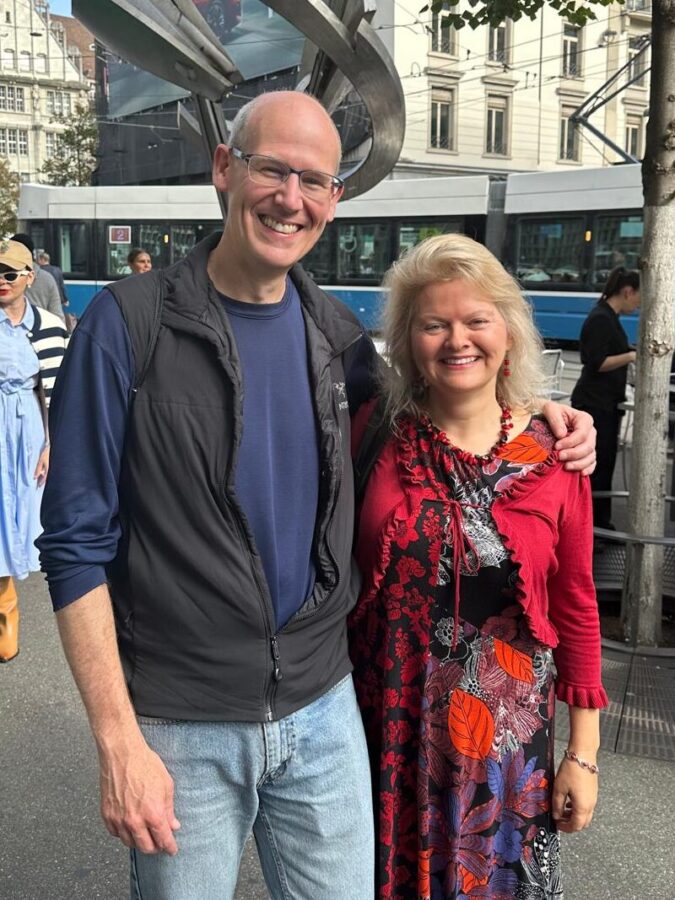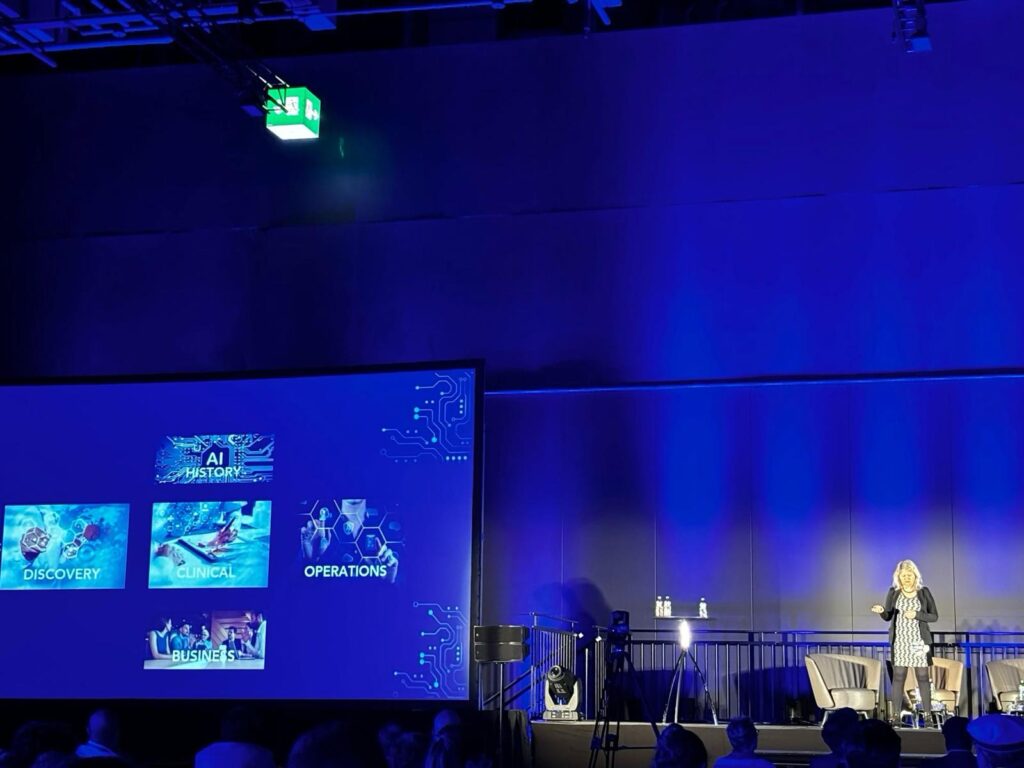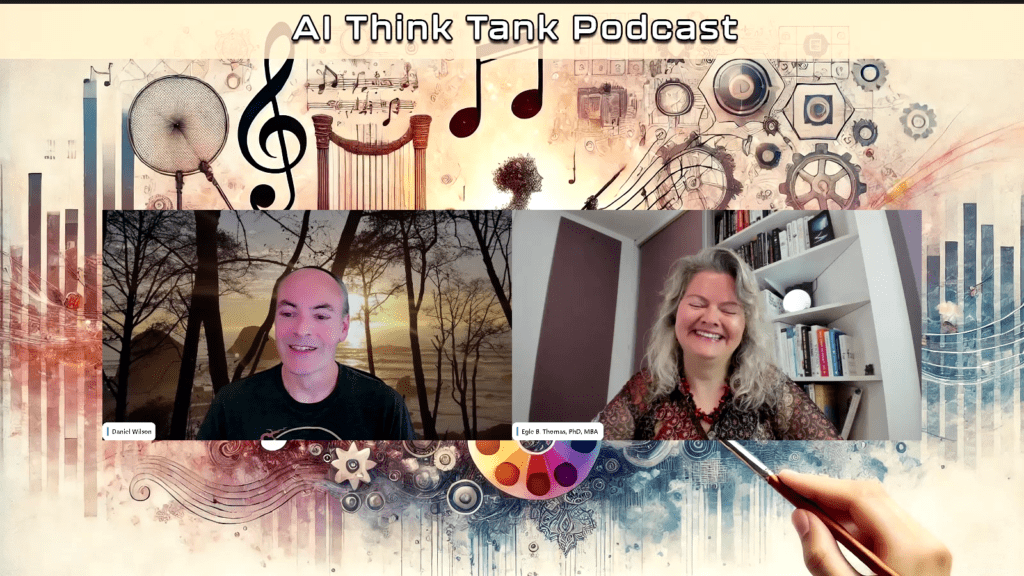Interview with Egle B. Thomas, PhD, MBA

After a nice four week break, the AI Think Tank Podcast is back for its 12 show. I had the pleasure of sitting down with Egle B. Thomas, a distinguished international AI advisor and business expert. Egle and I met last year through MIT and have remained close friends since. Our discussion spanned the global state of artificial intelligence and its multifaceted impact on art, music, business, and humanity. Here’s a detailed look at our conversation.
The Rapid Integration of AI
We kicked off the episode by discussing the significant strides AI has made in becoming a part of our daily lives. Egle noted, “I’ve been telling my clients a year ago that I couldn’t wait for the summer because I felt that everything would be integrated by now, and it is.” This statement captures the essence of how AI has swiftly integrated into devices and systems, making advanced technologies more accessible and reducing the anxiety that often accompanies new tech.
Reflecting on our time at MIT, we agreed on the critical importance of understanding the systems we engage with. The training emphasized not just deploying AI solutions but doing so thoughtfully and strategically. Egle and I have seen firsthand that real solutions require more than just technology; they need a deep understanding and a well-thought-out approach.
Egle’s Remarkable Journey
Egle’s story is truly inspiring. At 17, she moved to the United States with only $50. “I was planning for a one-way flight to Chicago,” she recalls. Living with an American family whose son, Mark Nelson, would go on to become the CEO of Tableau, gave her early exposure to top tech minds. This experience significantly influenced her career path, making her a prominent figure in AI and business today.

AI’s Impact on Business and Humanity
One of the central themes of our discussion was AI’s impact on business and humanity. Egle shared her insights on how AI is transforming industries and helping companies become more efficient. “I’m always looking with each company, with each organization that I work with, what is it that they’re trying to do? What is it that will help them the best?” she explained.
We delved into the challenges businesses face when integrating AI. Many companies are not yet positioned from a data architecture perspective to effectively implement AI. Egle highlighted a Harvard Business Review study indicating that while 67% of chief development officers plan to invest in data architecture, only 11% believe their systems are currently suitable for AI integration.
This disconnect often leads to frustration when AI implementations don’t work as expected. Egle emphasized the need for companies to start with the right foundation: “If you want to be AI first, you need to be data first, to the right data architecture.”
The Human Element in AI Integration
Egle’s work goes beyond just the technical aspects of AI; she places a significant emphasis on the human element. She shared a compelling example from a pharmaceutical conference in Basel where she began her presentation with a breathing exercise. “Every single person carries an emotion,” she noted. This approach helped address the emotional responses people have towards AI, fostering a more open and receptive atmosphere.
One of the critical points Egle made was the need for AI to complement human abilities rather than replace them. She cited a Harvard Business School study showing that integrating AI often initially leads to a performance drop due to anxiety and stress among employees. However, with the right approach, these initial challenges can be overcome, leading to significant long-term benefits.

AI in the Creative Arts
Our conversation also touched on AI’s role in the creative arts. As someone deeply involved in music and the arts, I was particularly interested in Egle’s perspective. She has been using AI tools like Suno and Udio to create music. Despite the music industry’s resistance, exemplified by ongoing lawsuits against these platforms, Egle believes AI democratizes creativity.
“For me, it’s about not looking for perfection, but looking for impact,” she said. Egle shared her experience of creating music with AI, noting that while the quality might not be on par with professional musicians, the emotional resonance and connection with the audience are what matter most. Egle’s YouTube Channel: Egle’s Youtube Channel: https://www.youtube.com/@Egle-InnerLight
Mental Health and Well-being
Egle’s work in AI also intersects with mental health and well-being. She’s a certified mental health coach and emphasizes the importance of integrating AI in a way that supports human well-being. Studies have shown that excessive reliance on AI can lead to feelings of disconnection and increased stress. Egle advocates for balancing AI integration with efforts to maintain human connections and emotional health.
She shared a poignant insight: “When you do this work, connect with each other, connect with nature, find a way to do this.” This holistic approach ensures that AI serves to enhance, rather than detract from, our overall quality of life.

The Double Standards in AI Perception
An interesting point Egle raised was the double standards people often have when it comes to AI. She noted that while we readily accept and forgive human errors, we are far less tolerant of mistakes made by AI. “If the AI tells you something that’s not fully correct, everybody goes mad,” she observed.
This discrepancy can hinder the acceptance and effective use of AI. Egle calls for a single standard for evaluating information, whether it comes from a human or an AI. She also touched on the misconception that AI is conscious, emphasizing that it’s a tool designed to assist us, not replace human judgment or empathy.
The Future of AI
Looking ahead, Egle is optimistic about the future of AI, but she stresses the need for careful and thoughtful integration. Her work involves not just implementing AI but also helping organizations and individuals navigate the emotional and practical challenges that come with it.
In the immediate future, Egle plans to continue her work in AI and mental health, with upcoming presentations and workshops aimed at helping businesses and individuals leverage AI effectively while maintaining a focus on human well-being.
Conclusion
From the technical challenges of integration to the emotional and human aspects of its impact, Egle’s insights provide a comprehensive view of where we are and where we’re headed. As we continue to navigate this rapidly evolving landscape, it’s clear that a balanced approach that values both technological advancement and human connection is essential.
Join us as we continue to explore the cutting-edge of AI and data science with leading experts in the field.
Subscribe to the AI Think Tank Podcast on YouTube. Would you like to join the show as a live attendee and interact with guests? Contact Us


I am a student and I want to be notify next time this organisation have webinar